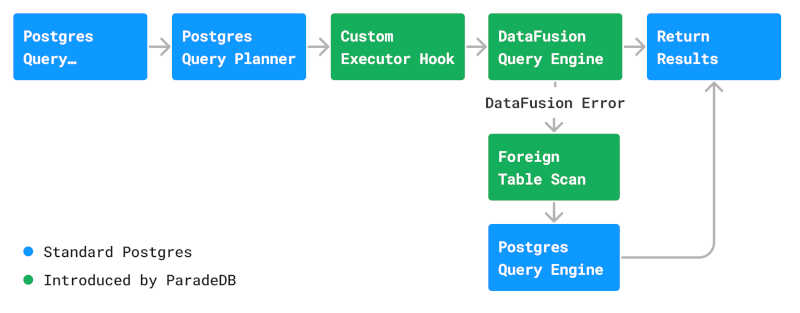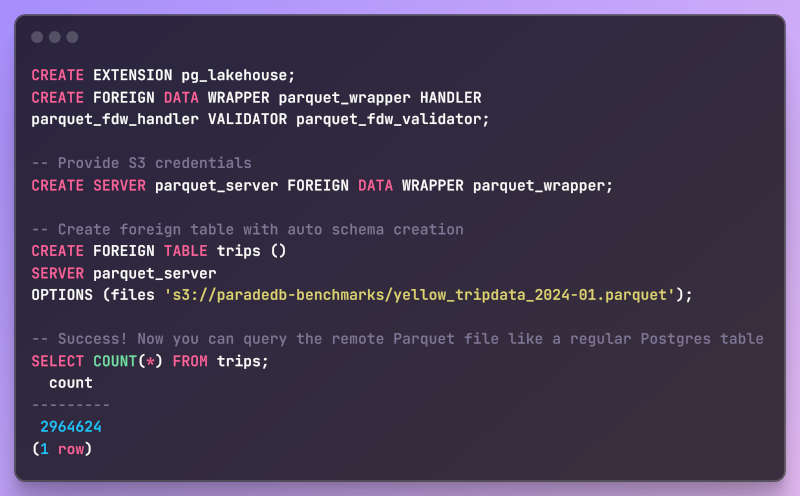| Pg_lakehouse Makes PostgreSQL Quack |
| Written by Nikos Vaggalis |
| Monday, 08 July 2024 |
|
Pg_Lakehouse from ParadeDB is an extension that turns PostgreSQL into the analytical engine of DuckDB. Why is that useful? How do you use it? Thanks to extensions, many of which we've already reported on, database developers can enjoy Postgres-for-everything, Postgres-as-anything:
It's about time for PostgreSQL to assume the role of DuckDB and now it can, thanks to the pg_lakehouse extension by the makers of pg_bmp25, ParadeDB. DuckDB is, of course, the alternative to SQLite for analytical workloads; local first, embeddable and suitable for data science work. With pg_lake PostgreSQL is powered up with those high performance analytical query engine capabilities too.
pg_lakehouse uses the foreign data wrapper (FDW) API to connect to those data sources. While other FDWs like aws_s3 have existed in the Postgres extension ecosystem, these FDWs suffered from two limitations: Lack of support for most object stores and table formats pg_lakehouse differentiates itself by supporting a wide breadth of stores and formats and by being very fast (thanks to DuckDB). As such it supports the following object stores and table formats: Object Stores
Table Formats
The connection is made upon creating the foreign table when you pass in the path of the object store to load. For instance: An example will make it comprehensible. The following example uses pg_lakehouse to query an example dataset of 3 million NYC taxi trips from January 2024, hosted in a public us-east-1 S3 bucket provided by ParadeDB.
So there you have it, you can query your parquet files from PostgreSQL too! pg_lakehouse is under active and heavy development, with a long roadmap ahead:
More InformationRelated ArticlesThe Enduring Influence Of Postgres Hydra Turns PostgreSQL Into A Column Store Turn PostgreSQL Into A Vector Store pgsqlite - Load SQLite databases into PostgresSQL AGE - The Open Source PostgreSQL Extension For Graph Database Functionality Move Over To PostgreSQL With Babelfish and MangoDB Citus For PostgreSQL Goes Fully Open Source ElasticSearch Search Capabilities Baked Into PostgreSQL Turn Your SQLite Database Into A Server
To be informed about new articles on I Programmer, sign up for our weekly newsletter, subscribe to the RSS feed and follow us on Twitter, Facebook or Linkedin.
Comments
or email your comment to: comments@i-programmer.info |
| Last Updated ( Monday, 08 July 2024 ) |





